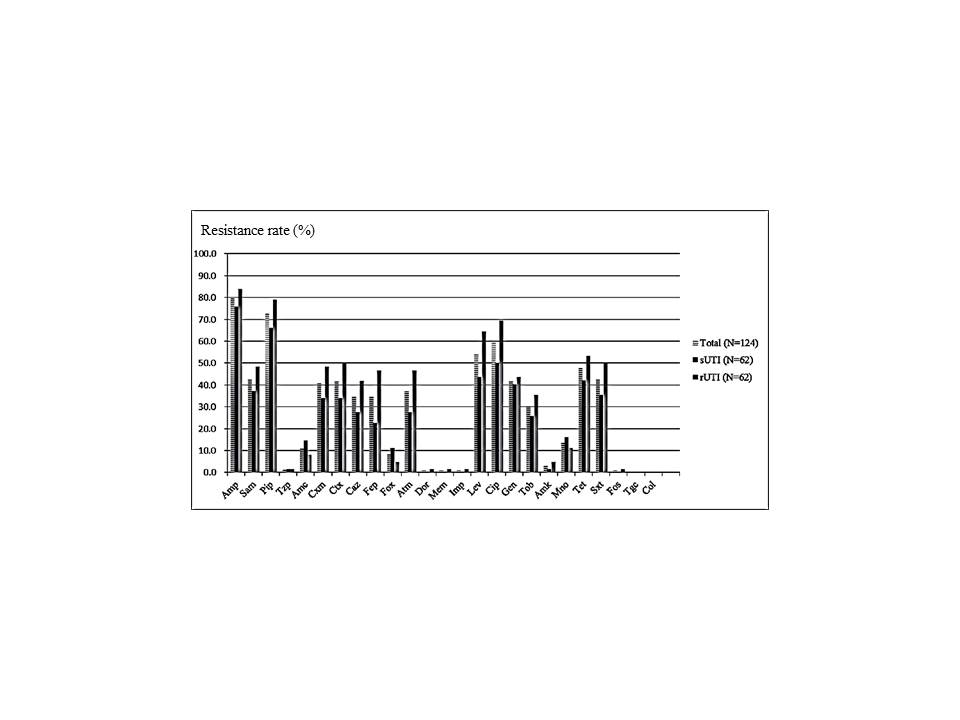Abstract
Background: The purpose of this study was to analyze the clinical and microbiological characteristics of recurrent urinary tract infection (UTI) caused by Escherichia coli— the most common etiological agent.Methods: Cases of recurrent and single episodes of UTI caused by E. coli were evaluated retrospectively for a period of 6 months (January-June 2019) to analyze the clinical and molecular characteristics of this disease.Results: Healthcare-associated UTI, E. coli bacteremia, and poor microbial clearance 7 days post infection were associated more with the recurrent episodes of infection. E. coli isolates from subjects with recurrent UTIs showed higher rates of antimicrobial resistance and extended-spectrum β-lactamase (ESBL) production. The E. coli clone— sequence type 131 was detected in similar proportions in isolates, recovered from subjects in both groups— recurrent episodes and single episode of UTI.Conclusion: The control of antimicrobial-resistant ESBL-producing E. coli strains may be difficult using antimicrobial therapy and subsequently delay the clearance of the etiologic agent. This could play a major role in the development of recurrent UTIs.
Keywords
Escherichia coli Extended-spectrum β-lactamases Recurrent urinary tract infection Risk factors Sequence type 131
Figures & Tables

Fig. 1. Antimicrobial resistance rates of Escherichia coli. Total UTI (n = 124) included both recurrent episodes (n = 62) and single episodes (n = 62).


